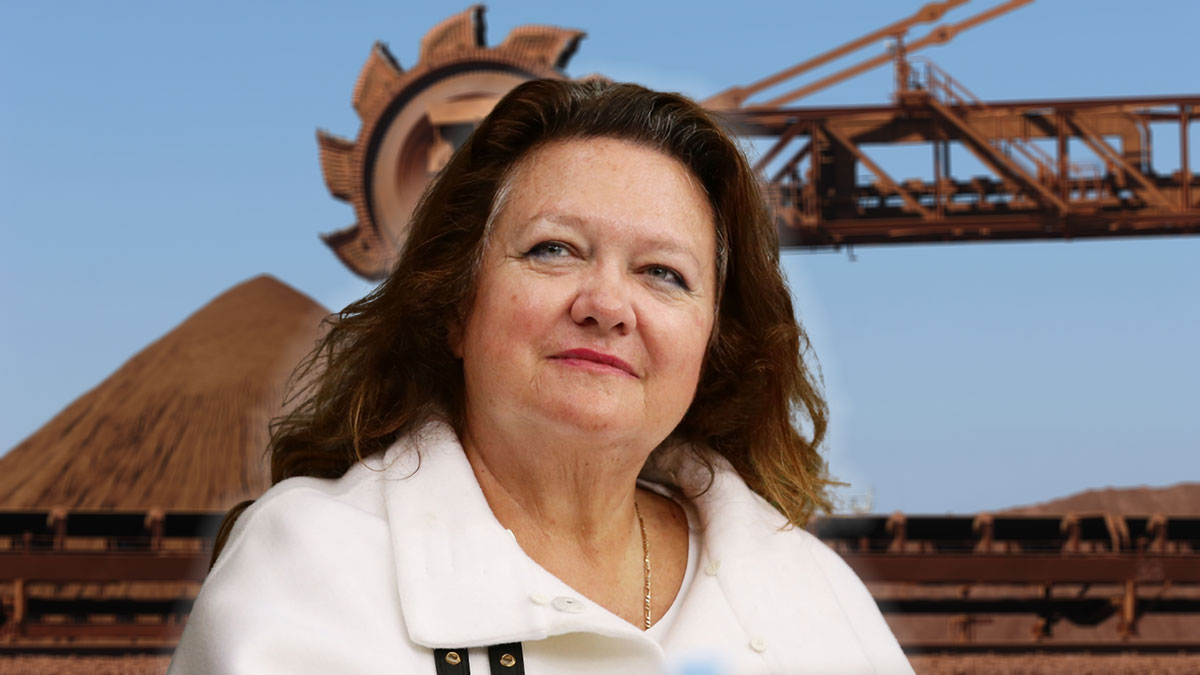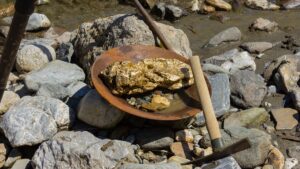Ground Breakers: Gina Rinehart’s path to mine sweet, sweet coal in Canada isn’t getting any easier

Pic: Getty
Gina Rinehart’s Riversdale Resources has suffered another blow in its bid to develop a 4.5Mtpa met coal mine in Canada’s famous Rockies mountain range, with an judge in Alberta knocking back its request for an appeal against a Government decision blocking the mine.
Owned by Riversdale subsidiary Benga Mining, the Grassy Mountain mine is the flagship asset Rinehart picked up in a cash takeover three years ago valuing Riversdale at $900 million.
The decision refused Benga, and traditional owner groups the Stoney Nakoda and Piikani Nations, leave to appeal a joint Federal-Provincial panel review in June.
That review found the mine would have significant adverse environmental effects on surface water quality, the westslope cutthroat trout and its habitat among other issues, and significant adverse effects on physical and cultural heritage of some First Nations.
The panel found the economic benefits of the mine would be “low to moderate”, and that Benga had presented an “overly optimistic economic analysis”.
While coking coal prices are currently at record highs, the panel review argued if they dropped to the low price scenario of US$100/t royalty revenues would be negligible.
Justice Bernette Ho ruled on January 28 that the grounds of appeal proposed by Benga, the Stoney Nakoda and Piikani Nations had “no arguable merit”.
It leaves the future of coal mining in the Crowsnest Pass – where Riversdale says Benga would spend some $800 million to develop Grassy Mountain and provide ongoing employment to around 400 people over a 23-year mine life – up in the air.
All three challengers have filed separate judicial review challenges of the provincial component of the panel decision with Alberta’s Court of Queen’s Bench, which were held in abeyance during the Court of Appeal proceedings.
Coal a hot button issue
Coal has become a hot button topic in Canada and while Australian authorities have generally worked hard to get controversial coal mines across the line over here, much to the chagrin of anti-coal activists, the tolerance of the Canucks is more mixed.
Alberta’s conservative government is supportive of coal mining, having reopened the Rockies for exploration in 2020, reversing restrictions in place since 1976.
Around 25% of the Grassy Mountain project was already mined some 60 years ago. Riversdale says this land would be fixed up and returned to its natural state once the mine closes.
But facing public pressure, the Alberta provincial government has spent some months mulling over a still to be released report on public support for the coal industry.
The centre-left Trudeau Federal Government is more strident, having said last year it will stop exports of thermal coal by 2030, though Benga’s hard coking coal would be sold into the steel market where there remains no scaled alternative to coal in the production process.
Rinehart-owned Riverdale’s regulatory struggles are being closely watched by a handful of juniors with interests in the Rockies.
Atrum Coal (ASX:ATU) today told investors via an ASX announcement the review is specific to Grassy Mountain, despite fears it will no doubt raise for the future status of its “world class” Elan coal project nearby.
“Atrum’s Elan Project will be a state-of-the-art responsible mining project delivering, via an ethical and secure supply chain, a key resource needed by the world for decades to come,” non-executive chairman Glen Koropchuk said.
“We will take all learning opportunities – including the decision of the JRP on Grassy – to work with our Indigenous and local community stakeholders to continuously improve Elan environmentally and socio-economically for the enduring interests of our shareholders and the people of Alberta.”
Montem Resources (ASX:MR1) has already hedged its bets by studying the conversion of its Tent Mountain coal project into a renewable energy and green hydrogen hub.
Crowsnest Pass coal share prices today:
Red 5 on home straight at King of the Hills
One thing you can get approved in Western Australia pretty easily is a gold mine.
We love digging the stuff up and the newest large scale gold mine (also kind of a golden oldie) is on the home straight.
Red 5 (ASX:RED) says it is 83% done with construction at its $226 million King of the Hills gold mine.
It has now restarted mining in the open pit, the first time that has occurred since the collapse of previous owner Sons of Gwalia back in the early 2000s.
It will see KoTH returned to something resembling its former glory, after the mine was largely used as a narrow-veined underground satellite for a string of miners since including St Barbara (ASX:SBM), Saracen and Red 5, which also owns the Darlot gold mine to the north.
Once in full flight the mine will produce in the order of 176,000ozpa on its own over a 16-year mine life, with additional feed from Darlot expected to take Red 5 beyond the 200,000ozpa mark as a company.
Underground mining at the 2.4Moz deposit is due to resume from April with first gold by the end of the June quarter.
“The start of open pit mining represents another exciting milestone, marking the start of ore production from Australia’s next major gold mine,” Red 5 boss Mark Williams said.
“We will now commence stockpiling ore ahead of the planned commissioning of the new, state-of-the-art KOTH processing plant, with all workstreams remaining on track to achieve first gold production in the June Quarter.
“The fact that we have been able to advance construction of the project on schedule and within budget – despite widespread labour and supply chain shortages – represents an outstanding achievement by our construction management team and MACA Interquip.
“With the commencement of mining on schedule, I would also like to acknowledge the efforts of our mining team and mining contractor Macmahon for their hard work and exceptional planning to date.”
Red 5 share prices today:
Related Topics

UNLOCK INSIGHTS
Discover the untold stories of emerging ASX stocks.
Daily news and expert analysis, it's free to subscribe.
By proceeding, you confirm you understand that we handle personal information in accordance with our Privacy Policy.








